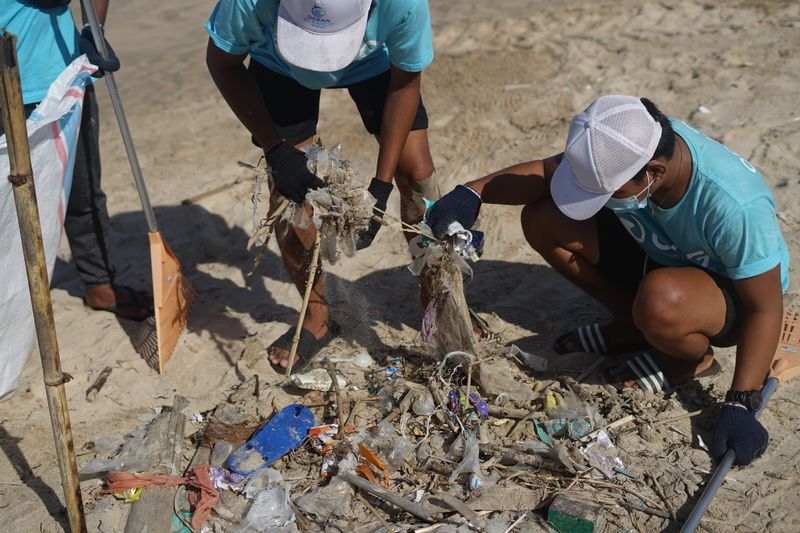Think of a recent conversation you had with someone you just met. Were there any awkward moments? Was it enjoyable and stimulating or were you finding ways to leave the conversation?
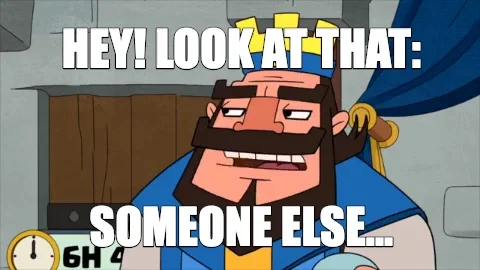
Despite being an outgoing person, I used to feel anxious when I had to talk to new people. Whether it’s with strangers at networking events or a friend’s party, I used to worry about:
What should I say if there is an awkward silence?
I’ve got nothing to contribute to this particular topic. Now what?

Over time, I discovered some strategies that helped me manage my anxiety. Now...
Conversations with new people are more positive and less stressful.
I can engage in better conversations that increase my knowledge and broaden my perspectives about different topics.
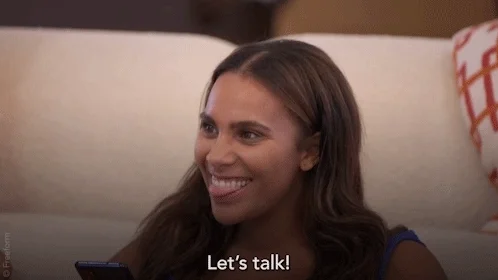
Did you know?
Tip #1: Ask Open-Ended Questions
Open-ended questions encourage more detailed and thoughtful responses. Ask questions that naturally make people elaborate beyond a "yes", “no” or single-word response.
Instead of "How are you?", try "What was the best or worst part about your day?"
Instead of "What do you do for work?", try "What inspired you to pursue your current career?"

Did you know?
Tip #2: Use the FORD Technique
It is an acronym that stands for Family — Occupation — Recreation — Dreams. I apply this technique as it provides a structure to start and maintain conversations with people.

Family: It's a topic that most people can relate to and have some experience with.
You could ask:
What's something your family does together that you really enjoy?
How has your family influenced who you are today?
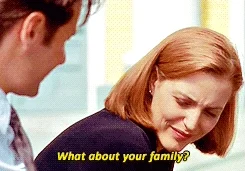
Occupation: People often identify strongly with their jobs, so asking about their occupation is a common way to get to know them.
You could ask:
What inspired you to pursue your current line of work?
What are you hoping to do after you complete your course? (for people who are studying)

Recreation: Personally I love this topic! It usually creates a more relaxed conversation since people could share things that they are enthusiastic about.
You could ask:
What's the most memorable activity you've ever experienced?
Are there any activities you've always wanted to try but haven't yet?
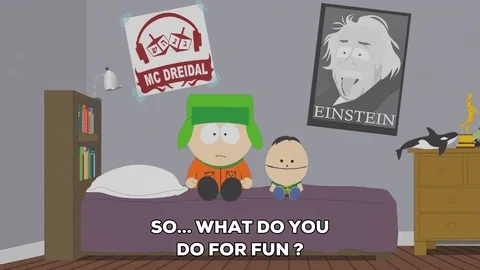
Dreams: Most people have dreams (or aspirations) they hope to achieve so asking them more could spice up the conversation.
You could ask:
Where do you see yourself/your business 5 years from now?
What's an adventure you're looking forward to pursuing?

Did you know?
Meet Jonas

Jonas is a researcher who was invited to a conference to present his work.

The Research Conference
It's his first time attending a research conference and he's attending alone. During a refreshment break, Jonas approaches Walter, another attendee, to start a conversation.
After Jonas and Walter introduce themselves, Jonas realizes that Walter isn't a researcher. He's at the event to support his wife’s presentation. He's a visual designer.
Jonas wants to continue the conversation but he isn't sure which question would be appropriate.
A. Are you happy with how the event is going so far?
B. Do you have any children?
C. What are your career plans for the next five years?
D. What inspired you to be a visual designer?
Quiz
What is an appropriate question for Jonas to ask to keep the conversation going?
Did you know?
Subscribe for more quick bites of learning delivered to your inbox.
Unsubscribe anytime. No spam. 🙂
Tip #3: Apply Active Listening
Although 96% of people believe they're good listeners, they only retain about half of what they hear, according to research.
When people speak, I used to have the urge to jump in and share my story. My body language also made people think that I was not really there.
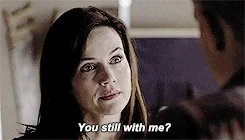
I started engaging in active learning techniques to be fully attentive to the people that I have conversations with. Some of the strategies have helped me show people that I’m really listening and walk away learning something new!
Put away your devices (or anything that distracts you). It's the first step to being present.
Withhold judgment. Communicate non-judgment through words and body language so it creates a safe conversation space where people can trust they won't be negatively received.
Probe with follow-up questions. Demonstrate that you're genuinely interested in understanding your conversation partner’s responses.
You could ask:
• Can you tell me more about that?
• How did that make you feel?
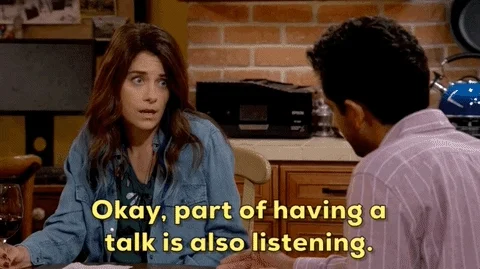
Meet Eva

Eva has participated in several overseas volunteer projects. She has many interesting stories about her volunteer experiences.
The Beach Cleanup
Eva sees a beach cleanup project in her city and she decides to volunteer, too.
During lunch, all the volunteers start mingling with each other and Colin talks about his volunteer experience in an aquarium. Eva also has a similar story that she wants to share.
Quiz
What could she do to demonstrate active listening?
Tip #4: Answer Questions Thoughtfully and Honestly
A good conversation is a balance of asking questions and answering questions.
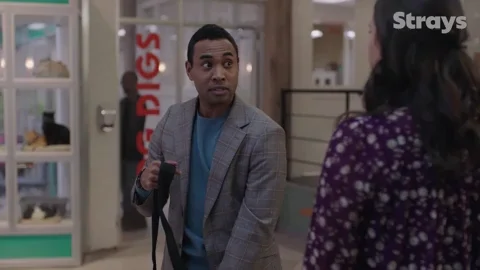
When I answer questions, I’ve been in situations where:
I overshared and dominated the conversation.
I had no clue about the topic and I became self-conscious about how people perceived my lack of knowledge.

In many cases, people unknowingly overshare and realize it only later. These strategies could help you stop oversharing.
Keep it brief. Focus on conveying the most important points.
Set a personal time restriction. Speak briefly, ideally less than 40 seconds.
End with a question. It helps to keep the dialogue going and encourage participation.
You could ask:
• What are your thoughts on [topic]?
• Can you share an experience you've had with [topic]?
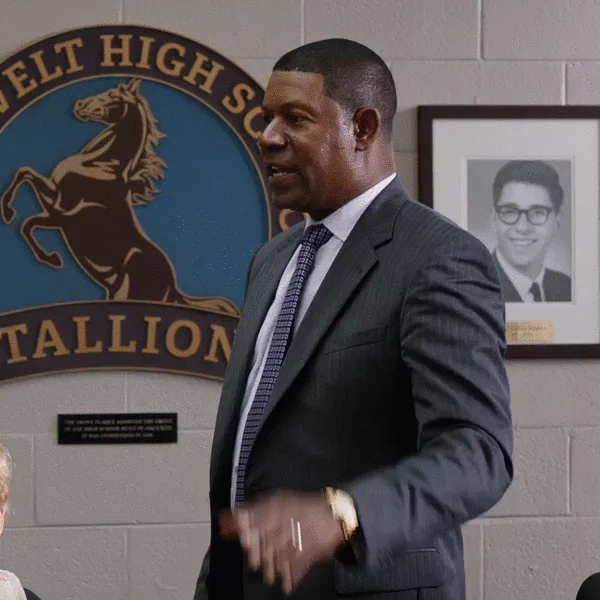

Many people feel nervous in situations where they might face rejection. By following these 3 steps, I was able to stop worrying, keep the conversation going, and gain a better understanding of many topics.
Step 1: Admit that you don’t know. There's more value in building trust and credibility than telling white lies to fit in.
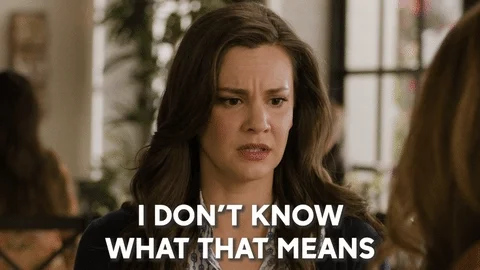
Step 2: Ask Questions. It can demonstrate your openness to learning.
Step 3: Appreciate the new knowledge. Thanking or complimenting people who are speaking to you goes a long way toward having more opportunities for interaction in the future.

Did you know?
Meet Tess

Tess is a passionate veterinarian. She has always had a love for animals and she spends most of her time learning about new ways to treat her patients.
 Photo by Antenna on Unsplash
Photo by Antenna on UnsplashThe Dinner Party
Tess attends a dinner party hosted by her roommate. During a conversation with a guest named Ben, Tess is asked about her thoughts on cryptocurrency. Tess knows that cryptocurrency is a digital currency, but she doesn’t know anything more about it.
Tess wants to keep the conversation going but doesn't know how to respond.
A. I think it's cool. I can imagine it being the future of veterinary medicine.
B. I don’t know anything about it. Can you tell me what it's about?
C. I have some cryptocurrency but I don’t know too much about it.
D. If we talk about veterinary medicine, I will have a lot more to share.
Quiz
What could Tess say?
Take Action

Your feedback matters to us.
This Byte helped me better understand the topic.

